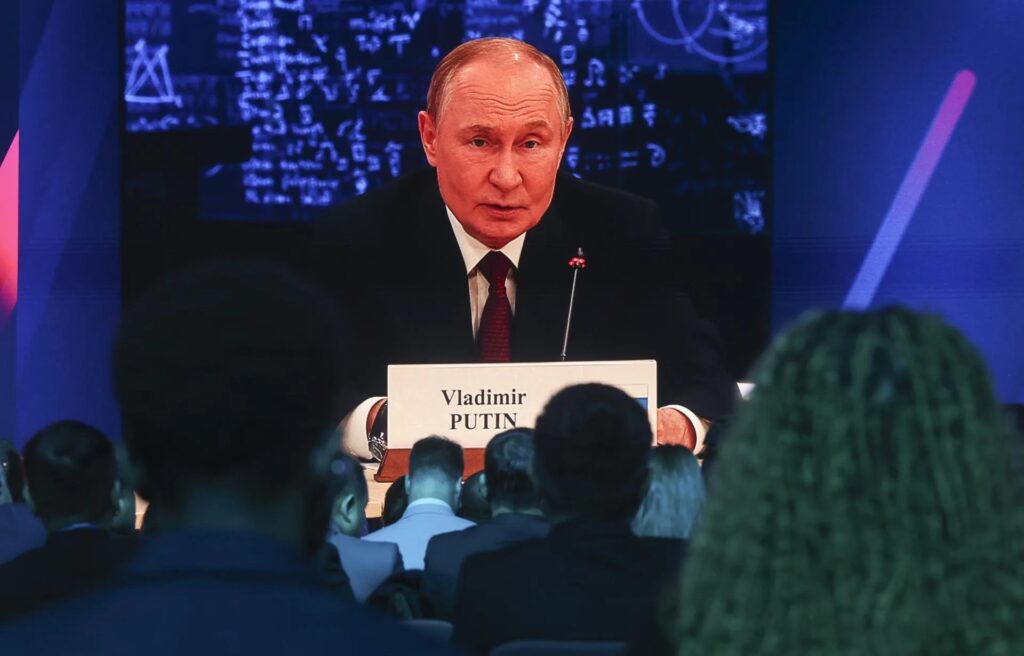Russia’s Nuclear Diplomacy: A Strategic Play for Global Influence and Control
Russia leverages nuclear energy diplomacy to extend its geopolitical grip, masking long-term control ambitions under the guise of peaceful cooperation while evading Western sanctions.

As Russia inaugurates its so-called World Atomic Week in Moscow, it is clear this event serves as more than a benign showcase of nuclear technology. Under President Vladimir Putin’s watchful eye, Russia is aggressively expanding its global influence through civilian nuclear energy projects—a strategy reminiscent of its prior energy manipulations in gas markets. But make no mistake, this is not mere technical cooperation; it is Moscow’s calculated attempt to entrench dependence and sway across strategic regions worldwide.
Is Russia Repackaging Energy Dependence as Sovereign Partnership?
Putin insists that Russia rejects “technological colonialism,” claiming it empowers partner nations to develop sovereign nuclear industries. Yet senior Kremlin officials openly acknowledge the century-long commitments inherent in nuclear plant construction—commitments that bind these countries to Moscow’s interests for generations. This long shadow guarantees Russian influence far beyond current geopolitical flashpoints, locking partners into economic and strategic dependencies.
The forum features key figures including the International Atomic Energy Agency (IAEA) Director Rafael Grossi and Rosatom head Alexéi Lijachov. While Grossi emphasizes peaceful use, Moscow’s recent military aggression dangerously jeopardized Ukraine’s nuclear facilities, underlining a stark contradiction between words and actions. How much trust can the international community place in Russian assurances when nuclear safety has been weaponized?
From Gas Monopoly to Nuclear Hegemony: What Does This Mean for America?
With Western sanctions choking Russia’s gas exports and closing off traditional markets, Putin pivots to nuclear energy as a new lever of soft power—targeting the Global South with deals like Tehran’s eight-reactor project at Bushehr or Egypt’s El Dabaa plant nearing completion. The Kremlin also deepens ties with Belarus by controlling its nuclear fuel cycle and waste management—extending Moscow’s reach into Europe.
Worryingly, Rosatom-controlled logistics firms openly admit to circumventing international sanctions through complex transit routes involving third-party ports in Spain and Turkey. Such activities undermine America-first economic policies aiming to isolate malign actors who threaten global stability.
This strategic diplomacy erodes national sovereignties under a veneer of cooperation while expanding authoritarian influence in critical infrastructure sectors worldwide. For the United States committed to free markets and security, these developments demand vigilant scrutiny and assertive countermeasures.
How long will Washington allow Kremlin-driven energy diplomacy—disguised as peaceful progress—to reshape global alliances against American interests? The challenge lies not only in exposing these tactics but reinforcing America’s leadership by promoting transparent partnerships grounded in liberty and mutual respect.
